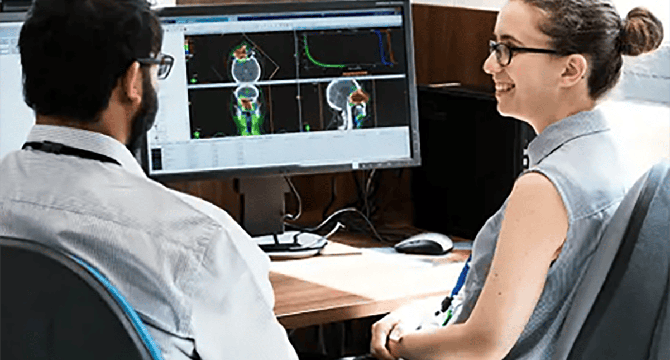Physicsworld
1M
126

Image Credit: Physicsworld
Physicists in cancer radiotherapy
- The University of Manchester has launched a master’s degree programme in medical physics, with a focus on cancer radiation therapy. Taught together with clinical physicists from The Christie NHS Foundation Trust, students will be equipped with the skills to progress towards careers in clinical, academic research or commercial medical physics opportunities. The course reflects the modern field of medical physics, bringing together expertise from academics in pioneering the use of image-guided radiotherapy and big data analysis. Students will also benefit from attending research seminars led by professionals at the forefront of cancer treatment developments.
- The programme focuses on the cancer radiation therapy patient pathway, with the aim of equipping students with the skills to progress onto careers in clinical, academic research or commercial medical physics opportunities.
- Manchester has a long history of developing solutions to drive improvements in healthcare, patients’ lives and the wellbeing of individuals. This new course draws on scientific research and innovation to equip those interested in a career in medical physics or cancer research with specialist skills that draw on a breadth of knowledge.
- The course units bring together expertise from academics that have pioneered, amongst other work, the use of image-guided radiotherapy, big data analysis using real-world radiotherapy data, novel MR imaging for tracking oxygenation of tumours during radiotherapy, and proton research beam lines. Students will benefit directly from this network of research groups by being able to join research seminars throughout the course.
- The master’s course is taught together with clinical physicists from The Christie NHS Foundation Trust, one of the largest single-site cancer hospitals in Europe, where 16 linear accelerators across four sites, an MR-guided radiotherapy service and a high-energy proton beam service are operated.
- Complementary to X-ray therapy, students will learn about the concepts of proton beam therapy, how the delivery of protons is different from X-rays, and the potential clinical benefits and unique difficulties of protons due to greater uncertainties from how protons interact with matter. The course will provide an in-depth understanding of how imaging can be used throughout the patient pathway to aid treatment decisions and guide the delivery of radiation.
- The course delves into the fundamentals of artificial intelligence (AI) and machine learning, giving students the opportunity to implement their own solution for image classification or image segmentation. For those with leadership aspirations, guest lecturers from various academic, clinical or commercial backgrounds will detail career routes and how to develop knowledge in this area.
- The assessments are designed to allow sudents to apply their new knowledge to real medical physics problems, including dosimetric calculations, Monte Carlo simulations of proton depositions, image registration pipeline creation, and pitching for funding.
- The final part of the course is the research project, with examples for the current cohort including training an AI segmentation model for muscle in CT images, simulating prompt gamma rays from proton deliveries for dose verification, and assisting with commissioning MR-guided workflows for ultra-central lung treatments.
- The Medical Physics in Cancer Radiation Therapy MSc is a one-year full-time programme at the University of Manchester, and applications for the next academic year are open.
Read Full Article
7 Likes
For uninterrupted reading, download the app